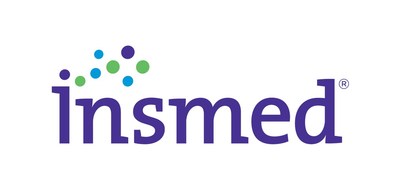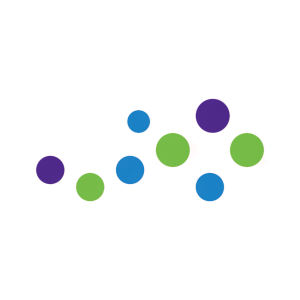Insmed Receives Priority Medicines (PRIME) Designation from European Medicines Agency (EMA) for Brensocatib in Patients with Non-Cystic Fibrosis Bronchiectasis (NCFBE)
Insmed announced that the European Medicines Agency (EMA) granted Priority Medicines (PRIME) designation to brensocatib for treating non-cystic fibrosis bronchiectasis (NCFBE). This designation aims to support drugs that address unmet medical needs. Brensocatib, an oral DPP1 inhibitor, is designed to reduce inflammation in NCFBE patients. Following positive Phase 2 trial results, Insmed plans to initiate the Phase 3 ASPEN trial by year-end 2020. Brensocatib also holds Breakthrough Therapy Designation from the FDA, enhancing its development prospects.
- Brensocatib received PRIME designation from the EMA, indicating potential for significant therapeutic advancements.
- The Phase 2 WILLOW study showed positive results, supporting the move to a pivotal Phase 3 program.
- Brensocatib has also received Breakthrough Therapy Designation from the FDA, further validating its potential.
- There are inherent risks associated with the clinical development of brensocatib, such as potential ineffectiveness or safety concerns in ongoing trials.
BRIDGEWATER, N.J., Nov. 13, 2020 /PRNewswire/ -- Insmed Incorporated (Nasdaq: INSM), a global biopharmaceutical company on a mission to transform the lives of patients with serious and rare diseases, today announced that the European Medicines Agency (EMA) has granted Priority Medicines (PRIME) designation to brensocatib for the treatment of non-cystic fibrosis bronchiectasis (NCFBE). Brensocatib is a novel, first-in-class, oral, reversible inhibitor of dipeptidyl peptidase 1 (DPP1) being developed by Insmed for the treatment of NCFBE and other inflammatory diseases.
The EMA's PRIME designation is designed to enhance support for the development of medicines that target unmet medical needs. To be eligible, treatment candidates must demonstrate the potential to offer a major therapeutic advantage over existing treatments, or benefit patients without treatment options, based on early clinical data. The benefits of PRIME designation include early and enhanced interaction with the EMA to optimize development plans and the potential for accelerated assessment. More information on PRIME designation can be found on the EMA website at ema.europe.eu.
"We are very pleased that the EMA has recognized the potential for brensocatib to offer an entirely new treatment approach for NCFBE, a severe and chronic disease with significant unmet needs," said Martina Flammer, M.D., MBA, Chief Medical Officer of Insmed. "We are building on the strength of the Phase 2 WILLOW study with the initiation of a pivotal Phase 3 program for brensocatib that we hope will bring forth this urgently needed solution."
The PRIME designation is based on positive results from the global, randomized, double-blind, placebo-controlled Phase 2 WILLOW study of brensocatib in adults with NCFBE. Insmed plans to initiate the registrational Phase 3 ASPEN trial of brensocatib in patients with NCFBE by the end of 2020. More information on this study is available at clinicaltrials.gov (NCT04594369).
In addition to PRIME designation, brensocatib has received Breakthrough Therapy Designation from the U.S. Food and Drug Administration.
About WILLOW
WILLOW was a randomized, double-blind, placebo-controlled, parallel-group, multi-center, multi-national, Phase 2 study to assess the efficacy, safety and tolerability, and pharmacokinetics of brensocatib administered once daily for 24 weeks in patients with non-cystic fibrosis bronchiectasis (NCFBE). WILLOW was conducted at 116 sites and enrolled 256 adult patients diagnosed with NCFBE who had at least two documented pulmonary exacerbations in the 12 months prior to screening. Patients were randomized 1:1:1 to receive either 10 mg or 25 mg of brensocatib or matching placebo. The primary efficacy endpoint was the time to first pulmonary exacerbation over the 24-week treatment period in the brensocatib arms compared to the placebo arm.
About Brensocatib
Brensocatib is a small molecule, oral, reversible inhibitor of dipeptidyl peptidase 1 (DPP1) being developed by Insmed for the treatment of patients with non-cystic fibrosis bronchiectasis (NCFBE) and other neutrophil-mediated diseases. DPP1 is an enzyme responsible for activating neutrophil serine proteases (NSPs), such as neutrophil elastase, in neutrophils when they are formed in the bone marrow. Neutrophils are the most common type of white blood cell and play an essential role in pathogen destruction and inflammatory mediation. In chronic inflammatory lung diseases, neutrophils accumulate in the airways and result in excessive active NSPs that cause lung destruction and inflammation. Brensocatib may decrease the damaging effects of inflammatory diseases such as bronchiectasis by inhibiting DPP1 and its activation of NSPs.
About Non-Cystic Fibrosis Bronchiectasis
Non-cystic fibrosis bronchiectasis (NCFBE) is a severe, chronic pulmonary disorder in which the bronchi become permanently dilated due to a cycle of infection, inflammation, and lung tissue damage. The condition is marked by frequent pulmonary exacerbations requiring antibiotic therapy and/or hospitalizations. Symptoms include chronic cough, excessive sputum production, shortness of breath, and repeated respiratory infections, which can worsen the underlying condition. NCFBE affects approximately 340,000 to 520,000 patients in the U.S. Today, there are no approved therapies specifically targeting NCFBE in the U.S., Europe, or Japan for the treatment of patients with NCFBE.
About Insmed
Insmed Incorporated is a global biopharmaceutical company on a mission to transform the lives of patients with serious and rare diseases. Insmed's first commercial product is a first-in-disease therapy approved in the United States and the European Union to treat a chronic, debilitating lung disease. The Company is also progressing a robust pipeline of investigational therapies targeting areas of serious unmet need, including neutrophil-mediated inflammatory diseases and rare pulmonary disorders. Insmed is headquartered in Bridgewater, New Jersey, with a growing footprint across Europe and in Japan. For more information, visit www.insmed.com.
Forward-looking Statements
This press release contains forward-looking statements that involve substantial risks and uncertainties. "Forward-looking statements," as that term is defined in the Private Securities Litigation Reform Act of 1995, are statements that are not historical facts and involve a number of risks and uncertainties. Words herein such as "may," "will," "should," "could," "would," "expects," "plans," "anticipates," "believes," "estimates," "projects," "predicts," "intends," "potential," "continues," and similar expressions (as well as other words or expressions referencing future events, conditions or circumstances) may identify forward-looking statements.
The forward-looking statements in this press release are based upon the Company's current expectations and beliefs, and involve known and unknown risks, uncertainties and other factors, which may cause the Company's actual results, performance and achievements and the timing of certain events to differ materially from the results, performance, achievements or timing discussed, projected, anticipated or indicated in any forward-looking statements. Such risks, uncertainties and other factors include, among others, the following: failure to obtain, or delays in obtaining, regulatory approvals for ARIKAYCE outside the U.S. or European Union or for the Company's product candidates in the U.S., Europe, Japan or other markets; failure to successfully commercialize or maintain U.S. or EU approval for ARIKAYCE, the Company's only approved product; business or economic disruptions due to catastrophes or other events, including natural disasters or public health crises; impact of the novel coronavirus (COVID-19) pandemic and efforts to reduce its spread on the Company's business, employees, including key personnel, patients, partners and suppliers; the risk that brensocatib does not prove effective or safe for patients in future clinical studies, including the ASPEN and STOP-COVID19 studies; uncertainties in the degree of market acceptance of ARIKAYCE by physicians, patients, third-party payors and others in the healthcare community; the Company's inability to obtain full approval of ARIKAYCE from the FDA, including the risk that the Company will not timely and successfully complete the study to validate a PRO tool and complete the confirmatory post-marketing study required for full approval of ARIKAYCE; inability of the Company, PARI Pharma GmbH (PARI) or the Company's other third-party manufacturers to comply with regulatory requirements related to ARIKAYCE or the Lamira® Nebulizer System; the Company's inability to obtain adequate reimbursement from government or third-party payors for ARIKAYCE or acceptable prices for ARIKAYCE; development of unexpected safety or efficacy concerns related to ARIKAYCE or the Company's product candidates; inaccuracies in the Company's estimates of the size of the potential markets for ARIKAYCE or its product candidates or in data the Company has used to identify physicians, expected rates of patient uptake, duration of expected treatment, or expected patient adherence or discontinuation rates; the Company's inability to create an effective direct sales and marketing infrastructure or to partner with third parties that offer such an infrastructure for distribution of ARIKAYCE or any of the Company's product candidates that are approved in the future; failure to obtain regulatory approval to expand ARIKAYCE's indication to a broader patient population; failure to successfully conduct future clinical trials for ARIKAYCE, brensocatib, TPIP and the Company's other product candidates due to the Company's limited experience in conducting preclinical development activities and clinical trials necessary for regulatory approval and its potential inability to enroll or retain sufficient patients to conduct and complete the trials or generate data necessary for regulatory approval, among other things; risks that our clinical studies will be delayed or that serious side effects will be identified during drug development; failure of third parties on which the Company is dependent to manufacture sufficient quantities of ARIKAYCE or the Company's product candidates for commercial or clinical needs, to conduct the Company's clinical trials, or to comply with laws and regulations that impact the Company's business or agreements with the Company; the Company's inability to attract and retain key personnel or to effectively manage the Company's growth; the Company's inability to adapt to its highly competitive and changing environment; the Company's inability to adequately protect its intellectual property rights or prevent disclosure of its trade secrets and other proprietary information and costs associated with litigation or other proceedings related to such matters; restrictions or other obligations imposed on the Company by its agreements related to ARIKAYCE or the Company's product candidates, including its license agreements with PARI and AstraZeneca AB, and failure of the Company to comply with its obligations under such agreements; the cost and potential reputational damage resulting from litigation to which the Company is or may become a party, including product liability claims; the Company's limited experience operating internationally; changes in laws and regulations applicable to the Company's business, including any pricing reform, and failure to comply with such laws and regulations; inability to repay the Company's existing indebtedness and uncertainties with respect to the Company's ability to access future capital; and delays in the execution of plans to build out an additional manufacturing facility approved by the appropriate regulatory authorities and unexpected expenses associated with those plans.
The Company may not actually achieve the results, plans, intentions or expectations indicated by the Company's forward-looking statements because, by their nature, forward-looking statements involve risks and uncertainties because they relate to events and depend on circumstances that may or may not occur in the future. For additional information about the risks and uncertainties that may affect the Company's business, please see the factors discussed in Item 1A, "Risk Factors," in the Company's Annual Report on Form 10-K for the year ended December 31, 2019, the Company's Quarterly Reports on Form 10-Q for the quarters ended March 31, 2020 and June 30, 2020 and any subsequent Company filings with the Securities and Exchange Commission (SEC).
The Company cautions readers not to place undue reliance on any such forward-looking statements, which speak only as of the date of this press release. The Company disclaims any obligation, except as specifically required by law and the rules of the SEC, to publicly update or revise any such statements to reflect any change in expectations or in events, conditions or circumstances on which any such statements may be based, or that may affect the likelihood that actual results will differ from those set forth in the forward-looking statements.
Contact:
Investors:
Argot Partners
Laura Perry or Heather Savelle
(212) 600-1902
Insmed@argotpartners.com
Media:
Mandy Fahey
Senior Director, Corporate Communications
Insmed
(732) 718-3621
amanda.fahey@insmed.com
![]() View original content to download multimedia:http://www.prnewswire.com/news-releases/insmed-receives-priority-medicines-prime-designation-from-european-medicines-agency-ema-for-brensocatib-in-patients-with-non-cystic-fibrosis-bronchiectasis-ncfbe-301172422.html
View original content to download multimedia:http://www.prnewswire.com/news-releases/insmed-receives-priority-medicines-prime-designation-from-european-medicines-agency-ema-for-brensocatib-in-patients-with-non-cystic-fibrosis-bronchiectasis-ncfbe-301172422.html
SOURCE Insmed Incorporated
FAQ
What is the significance of the PRIME designation for brensocatib?
When will the Phase 3 ASPEN trial for brensocatib begin?
What is the current status of brensocatib's clinical trials?








